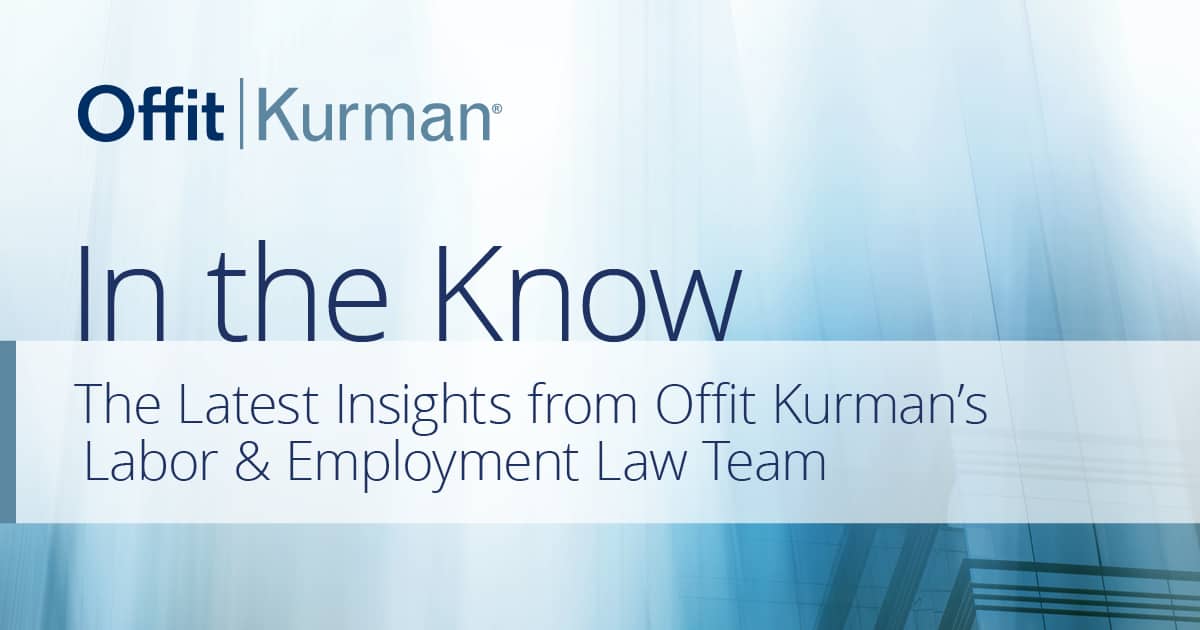Legal Blog
In the Know Series – Labor & Employment Law Changes – Federal

Stay Ahead of the Curve with Key Insights from Our L&E Team
Now that the first quarter is behind us, employers across the nation must navigate changes in federal labor and employment regulations. Our team has compiled a comprehensive overview of the latest updates at the federal level, providing insights to help you stay compliant and proactive in managing your workforce.
While not updates to the law, notable issues are below:
- With increased scrutiny on the ERC, the Service is starting to send out letters denying the credit. We anticipate it will send letters to employers who deserve the credit.
- Misdirected payroll tax deposits by payroll companies have increased, particularly where the payroll company handles payroll for related companies. Because they involve payroll taxes, the Service is particularly aggressive in its collection efforts. The quicker the client lets us know, the easier (and quicker) it is to resolve.
- ACA Issues: companies are receiving deficiency notices for failure to provide MEC. Most notices now are for the 2020 tax year. It is important for employers to understand that Treas. Reg. § 54-4980H-5((e)(2)(ii) does not define whether an offer of coverage is affordable. It simply provides a safe harbor. IRC § 36B(c)(2)(C)(i) determines whether an employer’s offer of coverage is affordable, which means even if coverage does not meet the safe harbor, it still may be affordable, so the employer avoids a penalty. We have obtained penalty abatements for several clients on this issue.
- Employer-Sponsored Healthcare Plans – The Next ERISA Fiduciary Duty Battlefield: With the issuance of much awaited final regulations, DOL has made clear that ERISA fiduciary duties apply with equal force to health and welfare benefit plans. Plaintiffs’ lawyers are actively looking for plaintiffs who are participants in employer-sponsored plans, particularly following the recent court decision regarding Johnson & Johnson’s healthcare plan. As in many areas, the best offense is a strong defense, which begins with companies implementing a health and welfare benefits committee to take a much more active role in the selection and negotiation of health plan benefits and documenting this process We have guided many clients on how to organize and structure health and welfare benefit committees.
ABOUT SCOTT TIPPETT
 scott.tippett@offitkurman.com | 336.232.0671
scott.tippett@offitkurman.com | 336.232.0671
Scott Tippett focuses his practice on wealth management law and corporate, business, and real estate issues for individuals, families, and small to mid-sized closely held companies including medical, dental, and veterinary practices.
Mr. Tippett began practicing law in 1987 in Atlanta where he litigated major construction project disputes, complex white-collar crime matters, and significant business and estate issues. In addition to practicing law, he ran a manufacturing company in High Point in the mid -1990s, which provided him with a unique and broad perspective on understanding the various issues faced by business owners and managers.
